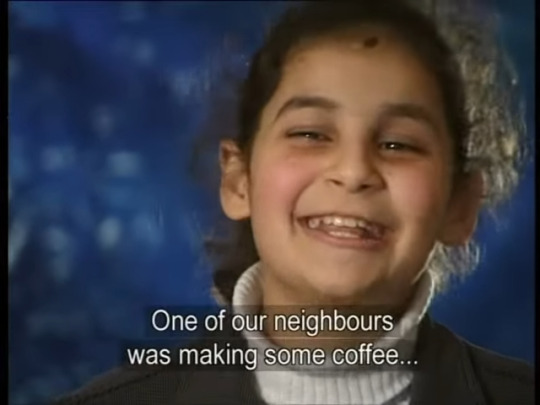#MAI MASRI
Text
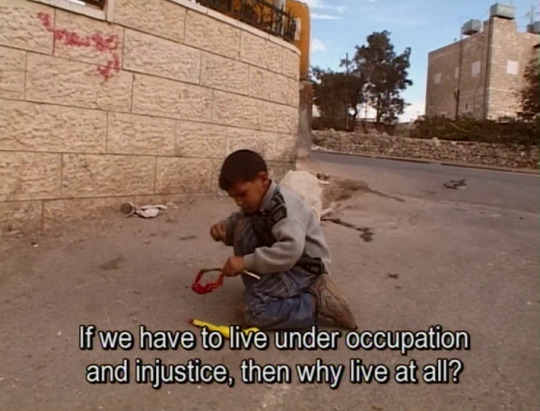
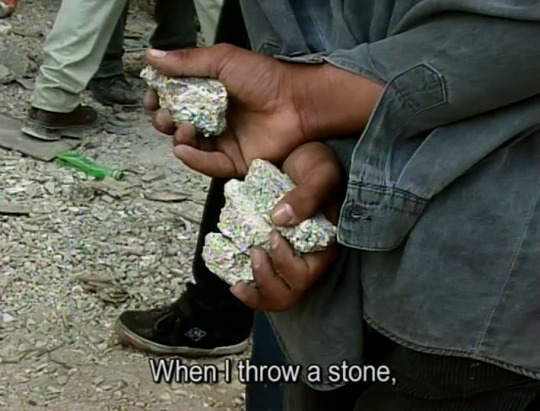
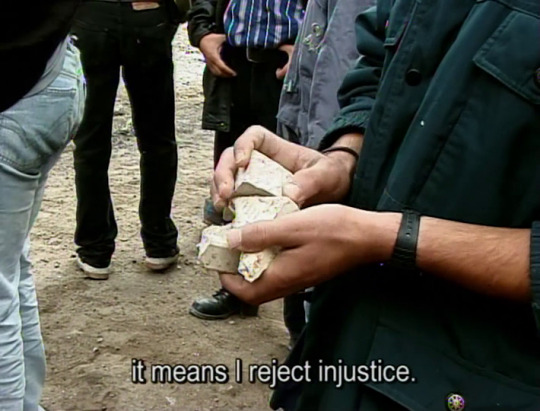

Mai Masri - Frontiers of Dreams and Fears (2001)
14K notes
·
View notes
Text
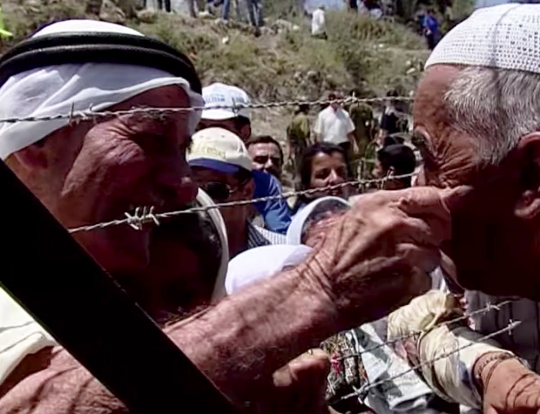
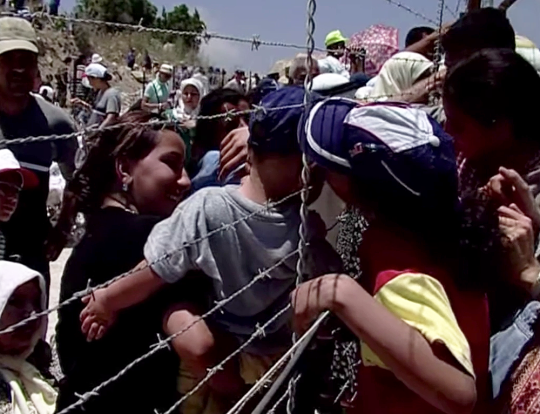
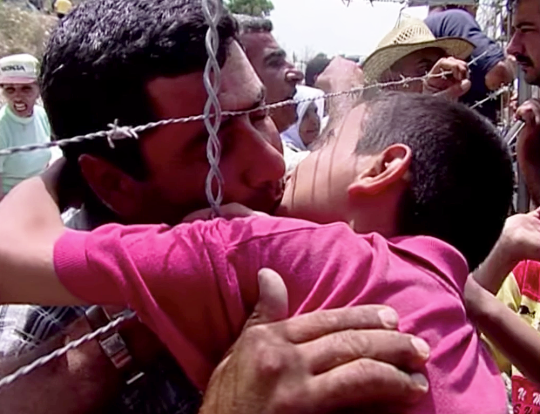
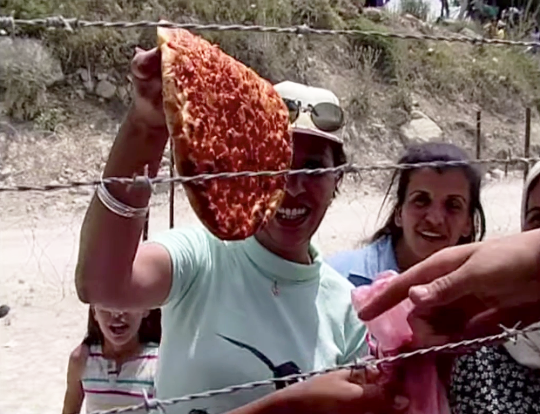
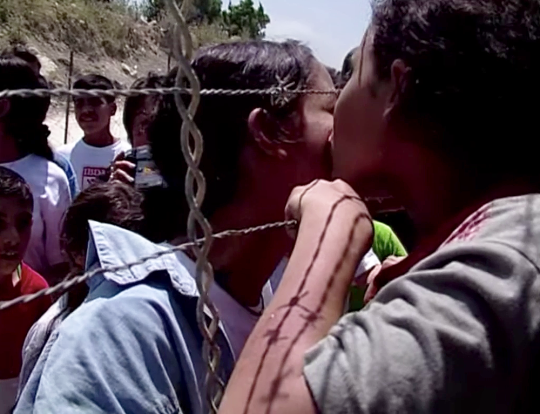
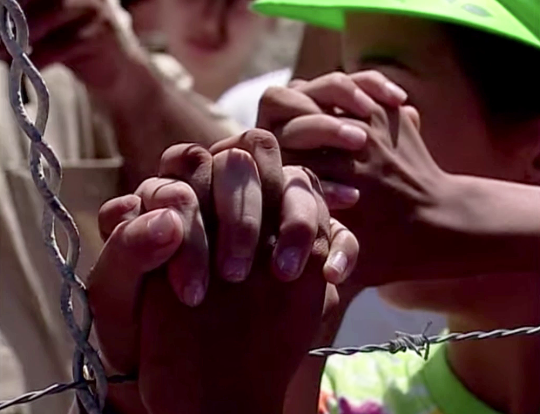
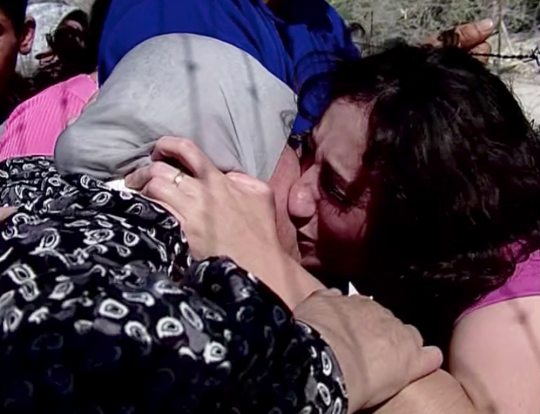

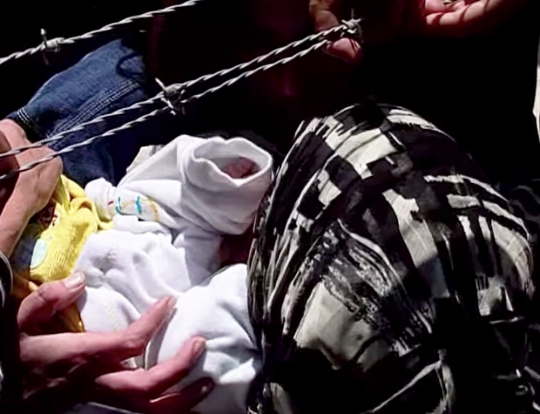
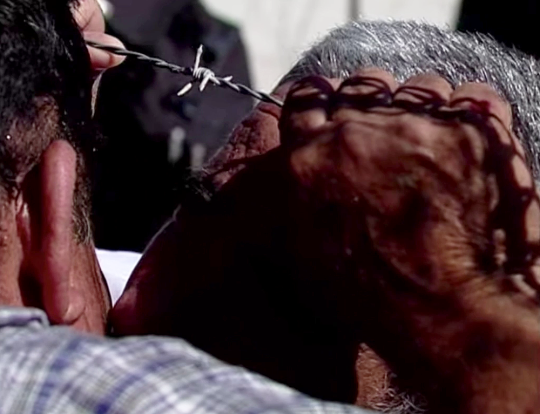
Frontiers of Dreams and Fears (2001, Mai Masri)
As Southern Lebanon is liberated from Israel, Palestinian refugees from the Beirut and Bethlehem camps meet after 52 years
watch on the Palestine Film Institute site, Mai Masri's vimeo, or netflix
#frontiers of dreams and fears#mai masri#documentary#palestine#palestinian cinema#southern lebanon#women directors#world cinema#post#screencaps
5K notes
·
View notes
Text

Children of Shatila opens with 1982 archive footage of Israeli war planes over Beirut, flames rising from the city, tanks moving inexorably towards Shatila, long panning shots over heaps of dead bodies of people, and a downed white horse, lines of heartbroken grieving women, men in face masks digging burial preparations. That was the history the children in the film never saw for themselves, but know in great detail from family and community lore. One boy talks with complete composure of how the bulldozers in the neighbourhood scooped up bodies of Palestinians and Lebanese together in death as they had been in life, and then, how his own aunt died, “Her head was cut off.” Mai’s technique is very rarely to use interviews, but rather to keep the camera running as ordinary life goes on with people talking, especially children, who have just got used to her being a part of it. Scenes in a classroom, in a family dinner, running through the alleys, jokes and games unfold so naturally that the viewer is in Shatila, not watching from the outside. There is truth conveyed in this seemingly effortless work method (which is in fact the fruit of a great investment of time and of listening skills) that could never be achieved in a traditional interview with all its opportunities for reflection before and cutting afterwards making for a confected product.
Children of Shatila shows a crowd of children watching boys’ and girls’ groups dancing the traditional dabka with everyone clapping along. Mai brought them a new game. She is glimpsed giving a small digital camera to one of the children, and the film begins to show the images and footage of one child after another as they turn the camera on the scene, on each other, even on her, and watch the images on the small screen with absolute wonder.
Children interview each other on film and tell each other their dreams of being grown up, how they will be doctors, engineers, spacemen, and how they will get their houses in Palestine back. Again, their own footage is shown as part of the film. They move through the camp as a group and one girl asks a very old neighbour sitting in the dusty alley outside his home what it had been like leaving Palestine, and what would he do first if he went back. “We were a wretched lot – barefoot,” he tells them of his family’s flight to Lebanon in 1948, before going on to say he would first rebuild his house on returning, then look after the land and the olive trees. He leans forward to speak intently into their camera as he tells the children to promise him that even if it takes 100 years or more they will never forget Palestine. This is the history that all of them know as well as if they have lived it themselves and which we see reflected in all the painting, poetry and dreams that fill the children’s lives.
Text by Victoria Brittain, author of Love and Resistance in the Films of Mai Masri. Published by Palgrave Macmillan 2020
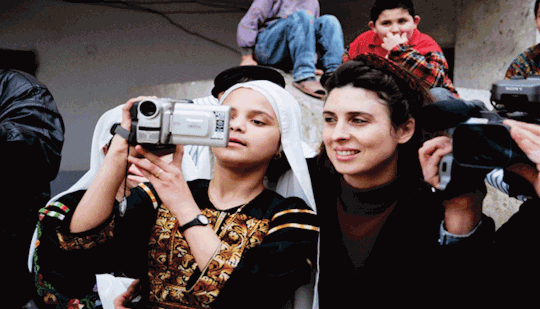
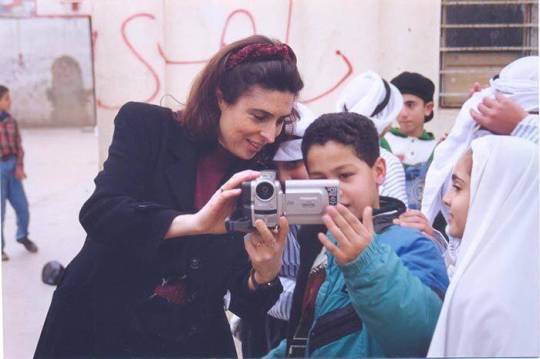
(x, x, x)
#film#palestine#documentary#caps#another screen#another gaze#90s#mai masri#children of shatila#lebanon#children of shatila 1998
9 notes
·
View notes
Text
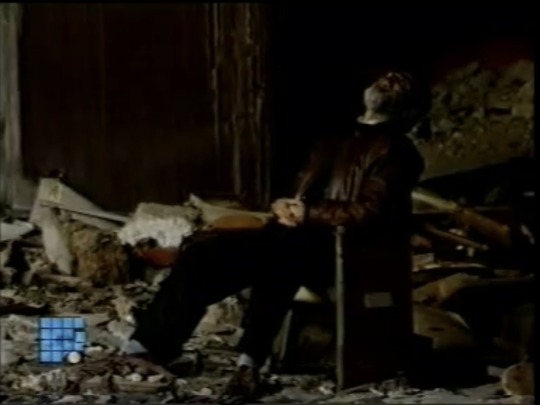
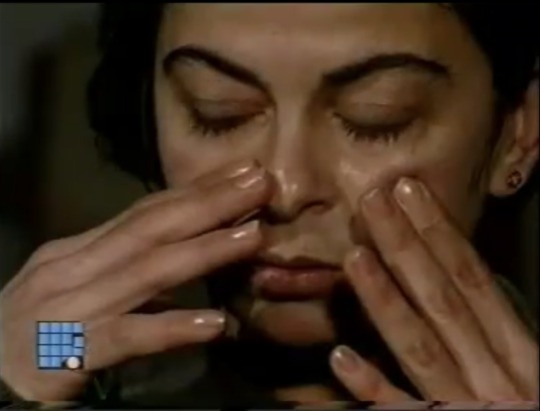
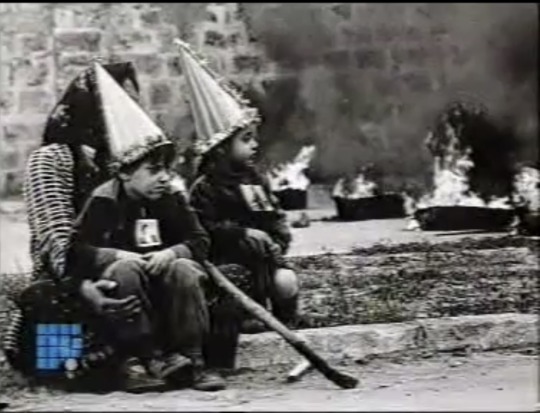

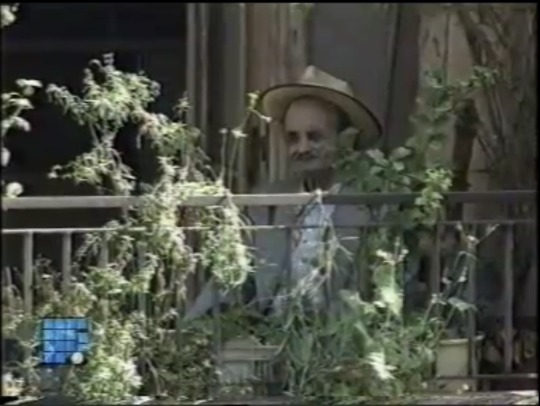

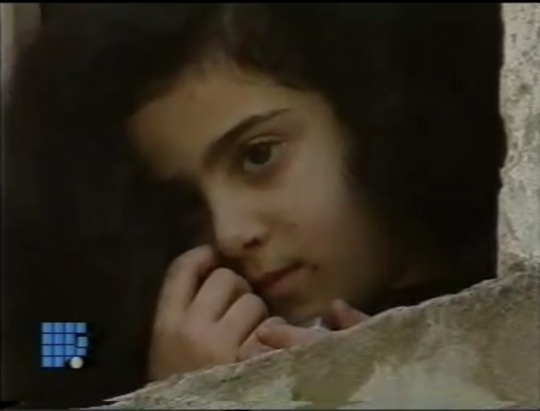



Suspended Dreams (1992 / Jean Khalil Chamoun, Mai Masri)
25 notes
·
View notes
Video
vimeo
EPISODE 010: Translations of Memory: The Films of Palestinian Cinema (Part One)
Understanding the history of Palestinian cinema begins with an understanding of its positioning in survival through decades of war and the diaspora of its culture. The events of the "Nakba", which sought the displacement and dispossession of an entire Palestinian nation, in 1948 set a paradigm of violence against Palestinians and the sovereignty of their land. Many of these tragic events, and those that took place leading, were captured by filmmakers alongside the birth of celluloid film technology, however, many of these films remain either lost or destroyed to this day. Film historians, and many Palestinian filmmakers, can identify Palestinian cinema through its four periods that are divided by significant markers of social change.
In Part One of Episode 010: Translations of Memory: The Films of Palestinian Cinema, we look into the signifying factors that shifted the first and second waves of Palestinian Cinema. Palestinian cinema is most recognized for its resistance to settler occupational forces that debilitated decades of independent productions, while its nation of people struggled to crystallize its unity and cultural homogeny, as much of its historical films were lost, and thus only exist today through memory and re-distributed by oral storytelling.
LA CINEASTE invites you to visit our Patreon where you can find exclusive content and written materials found in our film essays. Our Patreon also offers tiers that you can contribute to monthly.
Patreon Link
Youtube Link
Thank you for watching!
#PALESTINE#PALESTINIAN CINEMA#KHADIJA ABU ALI#MUSTAFA ABU ALI#MAI MASRI#MUHAMMED BAKRI#MICHEL KHLIEFI#RASHID MASHARAWI#NAKBA#FILM HISTORY#IBRAHIM HASSAN SIRHAN#JAMAL AL-ASPHAR#KING SAUD#OMAR A-RASHIDI#PLO#PALESTINIAN LIBERATION ORGANIZATION#FREE PALESTINE#APARTHEID#BRITISH COLONIALISM#VIDEO ESSAY#film essay#la cineaste#PATREON
35 notes
·
View notes
Text
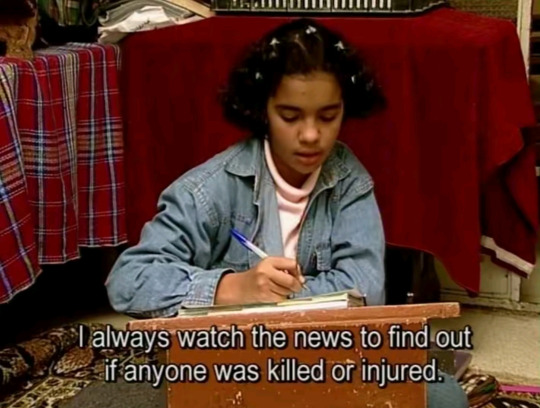
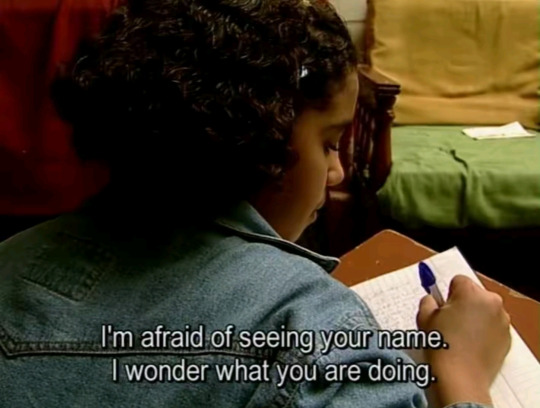
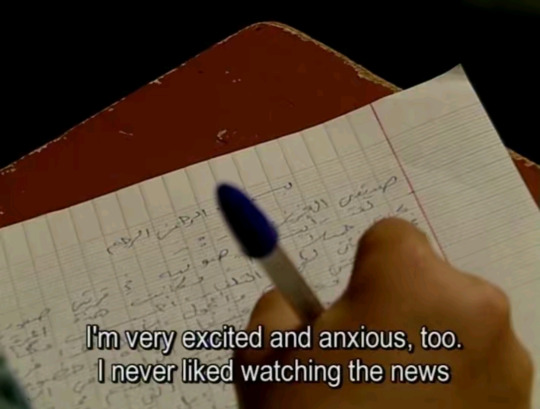

"I always watch the news to find out if anyone was killed or injured. I'm afraid of seeing your name. I wonder what you are doing. I'm very excited and anxious, too. I never liked watching the news, but now I watch it all the time."
Frontiers of Dreams and Fears, 2001. Dir. Mai Masri.
3 notes
·
View notes
Text
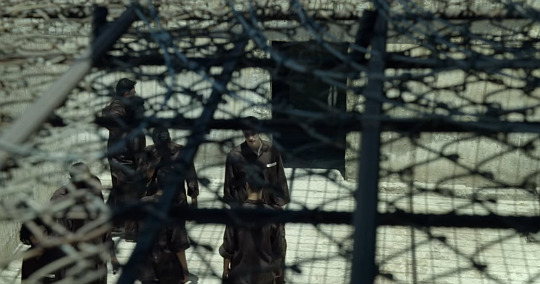
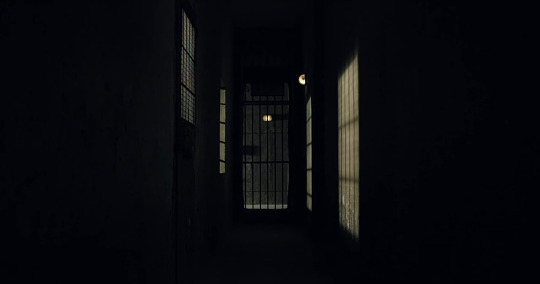
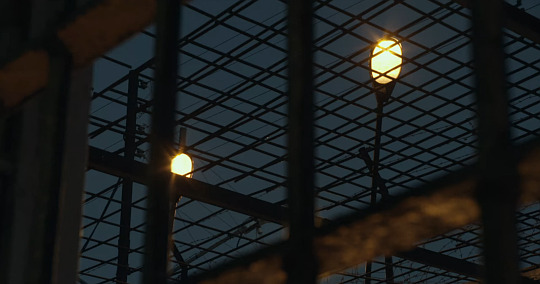
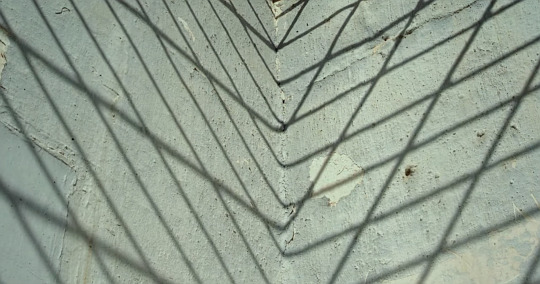


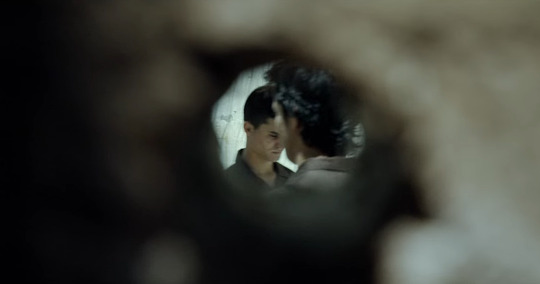


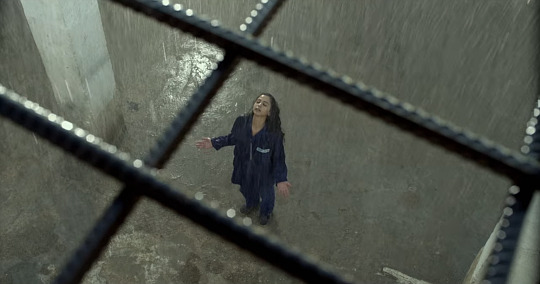
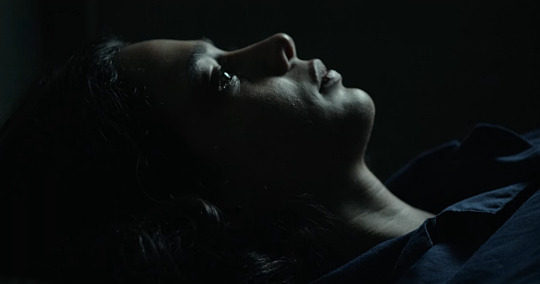
3000 nights (2015) dir. mai masri
1 note
·
View note
Text
If “The Mummy” (1999) was made today:
1) Dylan O’Brien as Rick O’Connell
2) Rosaline Elbay as Evelyn Carnahan
3) Amir El-Masry as Jonathan Carnahan
4) Mena Massoud as Ardeth Bay
5) Rami Malek as Imhotep
6) May Calamawy as Anck su Namun
(before anyone comments, Evy and Jonathan are canonically half-Egyptian)
#dylan o’brien#rosaline elbay#amir el masry#mena massoud#rami malek#may calamawy#the mummy#the mummy 1999#rick o’connell#evelyn carnahan#jonathan carnahan#ardeth bay#imhotep#anck su namun#fancast#evy carnahan#movies#films
32 notes
·
View notes
Text
Pieces of media to watch to educate yourself on the Palestinian cause :
“Jenin, Jenin” a documentary by Mohammad Bakri (available on Youtube)
“200 meters” a movie by Ameen Nayfeh (available on Netflix)
“Born in Gaza” a documentary by Hernán Zin (available on Netflix)
“Samouni Road” a documentary & animation by Stefano Savona (available on Netflix and Palestine Film Institute’s website)
“Edward Said on Palestine (1988)” a TV documentary style film by Christoper Skyes (available on Youtube)
“To My Father (2008)” a documentary style film by Abdel Salam Shehada (available on Palestine Film Institute’s website)
“Salt of this sea” a movie by Annemarie Jacir (available on Netflix)
“Children of Shatila” a documentary by Mai Masri (available on Netflix & Youtube)
“The Present” a short movie by Farah Nabulsi (available on Netflix)
“Frontiers of Dreams and Fears” a documentary by Mai Masri (available on Netflix & Youtube)
“The Crossing” a short film by Ameen Nayfeh (available on Netflix)
“Tantura” a documentary by Alon Schwartz (available on Youtube)
“3000 nights” a movie by Mai Masri (available on Netflix)
“Farha” a movie by Darin J. Sallam (available on Netflix)
“Arna’s Children” a documentary by Juliano Mer-Khamis (available on Youtube)
“Ma’loul celebrates it’s destruction” a documentary by Michel Khleifi (available on Youtube)
“A World Not Ours” a documentary style movie by Mahdi Fleifel (available on Netflix)
“Like Twenty Impossibles” a movie by Annemarie Jacir (available on Netflix)
“Omar” a movie by Hany Abu Assad (available on Netflix)
“Mars At Sunrise” a movie by Jessica Habie (available on Netflix)
“5 Broken Cameras” a documentary by Emad Burnat & Guy Davidi (available on Youtube)
“Aida Returns” a film by Carol Mansour (look for upcoming screenings through this link)
“Soraida, a woman of Palestine” a documentary style film by Tahani Rached (available on Youtube)
“Palestine In The Eye” a film by Mustafa Abu Ali (available on Youtube)
“ Naji Al-Ali An, Artist With Vision” a film by Kasim Abid (Available on Youtube)
“Tell Your Tale, Little Bird” a documentary style film by Arab Loutfi (Available on Youtube)
[this list will constantly be updated with more movies & documentaries that i’m reminded of, or with new pieces that i find and watch… if you have any suggestions please send them my way]
PS ; as this is a personal list coming from a Palestinian person, i will only be adding the movies and documentaries that i feel are MOST important and effective in transferring the message of the Palestinian cause… so all recommendations are highly appreciated yet this is just a personal list and doesn’t include all types of Palestinian (or Palestinian related) visual media 🙏
#palestine#free palestine#documentary#movies#youtube#gaza#film#end the siege#end the occupation#end the genocide#documentaries#i stand with palestine 🇵🇸#stop palestinian genocide#free palestine 🇵🇸#palestinian lives matter#from the river to the sea palestine will be free#save palestine#palestina#from the river to the sea 🇵🇸#gaza under attack#gazaunderfire#gaza genocide#stand with gaza#netflix#free gaza#movie industry#films#gaza strip#stop the genocide#save gaza
18K notes
·
View notes
Text
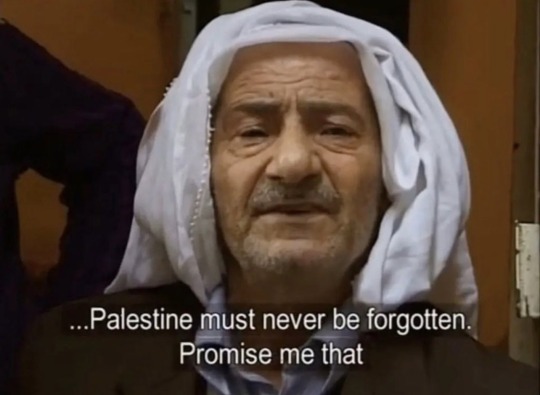
— Children of Shatila (1998) by Mai Masri
#keep fighting#pray that they will never be forgotten#🕊🇵🇸#in this life or the next#inshaallah#palestine#from the river to the sea#freedomisntfree
6K notes
·
View notes
Text
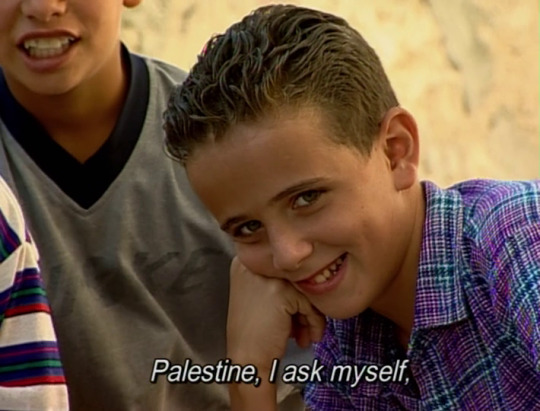

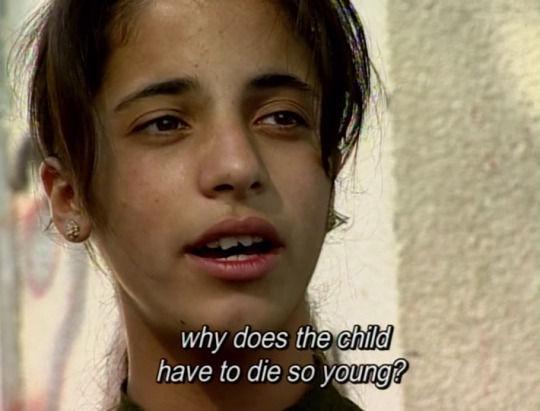
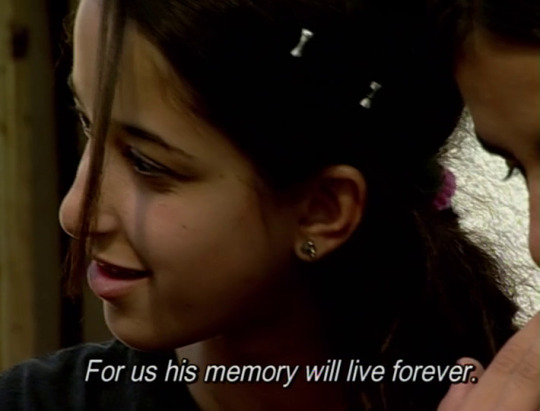
Mai Masri - Frontiers of Dreams and Fears (2001)
6K notes
·
View notes
Text
recommended resources on Lebanese resistance and its context
this has been in my drafts for a long time bc I wanted to find more audio resources but in light of recent events I'm posting as is, and will add more later. pdfs for texts without links can be found on libgen
⭐ = start with these
📺 = video resource
🎧 = audio resource
Hizballah
⭐ Lara Deeb, "Hizballah and Its Civilian Constituencies," in The War on Lebanon: A Reader, eds. Nubar Hovsepian and Rashid Khalidi (2007)
⭐🎧 Electronic Intifada Podcast with Rania Khalek, "Why Hizballah would deal Israel a deadly blow" (2024)
⭐🎧 Electronic Intifada Podcast with Amal Saad, "How Hizballah Aims to Deter Israel" (2024)
📺 Rania Khalek, Interview with Hezbollah's Second-in-Command Sheikh Naim Qassem (2023)
🎧 Rania Khalek and Julia Kassem, "The Hybrid War on Lebanon is All About Weakening Hezbollah" (2022)
Hassan Nasrallah, "Voice of Hezbollah: The Statements of Sayyed Hassan Nasrallah," ed. Nicholas Noe (2007)
Judith Harik, "Hizballah's Public and Social Services and Iran," in Distant Relations: Iran and Lebanon in the last 500 years (2006)
Sarah Marusek, Faith and Resistance: The Politics of Love and War in Lebanon (2018)
Abed T. Kanaaneh, Understanding Hezbollah: The Hegemony of Resistance (2021)
Karim Makdisi, "The Oct. 8 War: Lebanon's Southern Front" (2024)
Political theory
⭐ Ussama Makdisi, "Understanding Sectarianism," in The War on Lebanon: A Reader, eds. Nubar Hovsepian and Rashid Khalidi (2007)
⭐ Rula Juri Abisaab and Malek Abisaab, The Shi'ites of Lebanon: Modernism, Communism, and Hizbullah's Islamists (2014)
Ilham Khuri-Makdisi, The Eastern Mediterranean and the Making of Global Radicalism, 1860-1914 (2010)
Tareq Y. Ismael and Jacqueline S. Ismael, The Communist Movement in Syria and Lebanon (1998)
2006 war
⭐ Gilbert Achcar and Michel Warschawski, The 33-Day War: Israel's War on Hezbollah in Lebanon and Its Consequences (2007)
The Electronic Intifada with Dahr Jamail, "The world just sat by" (2006)
The Electronic Intifada with Bilal El-Amine, "Lebanon in Context" (2006)
The War on Lebanon: A Reader, eds. Nubar Hovsepian and Rashid Khalidi (2007)
Civil war and 1982 invasion
⭐📺 Up to the South, dir. Jayce Salloum and Walid Ra'ad (1993)
⭐📺 Wild Flowers: Women of South Lebanon, dir. Mai Masri and Jean Khalil Chamoun (1987)
⭐ Souha Bechara, Resistance: My Life for Lebanon (2003)
Jean Said Makdisi, Beirut Fragments: A War Memoir (1990)
Bayan Nuwayhed al-Hout, Sabra and Shatila, September 1982 (2004)
Ottoman era
Charles Al-Hayek, "How, then, did you try to rebel?"
Lebanon Unsettled, "Lebanon's Popular Uprisings"
Axel Havemann, "The Impact of Peasant Resistance on Nineteenth Century Mount Lebanon," in Peasants and Politics in the Modern Middle East (1991)
Ussama Makdisi, The Culture of Sectarianism: Community, History, and Violence in Nineteenth-Century Ottoman Lebanon (2000)
Peter Hill, "How Global was the Age of Revolutions? The Case of Mount Lebanon, 1821" (2020)
Mark Farha, "From Anti-imperial Dissent to National Consent: the First World War and the Formation of a Trans-sectarian National Consciousness in Lebanon" (2015)
French mandate era
⭐ Kais Firro, Inventing Lebanon: Nationalism and the State Under the Mandate (2002)
Sana Tannoury-Karam, "Founding the Lebanese Left: From Colonial Rule to Independence" (2021)
Idir Ouahes, Syria and Lebanon Under the French Mandate: Cultural Imperialism and the Workings of Empire (2018)
Malek Abisaab, Militant Women of a Fragile Nation (2009)
Misc
⭐📺 Leila and the Wolves, dir. Heiny Srour and Sabah Jabbour (1984)
⭐ Fawwaz Traboulsi, A History of Modern Lebanon (2007)
Karim Makdisi, "Lebanon's October 2019 Uprising" (2021)
2K notes
·
View notes
Note
hi hari 💚 i just want to say thank you for never shutting up about palestine and wanted to ask if you were willing to share a little list of where you get your updates/news about the situation (and current events in general)? what sources are the most misinformation-free that you would recommend? i hope you have a lovely day xx
In terms of news sites, I'm really only trusting Al Jazeera's coverage of the situation. I'm also following pages like Times of Gaza and Eye On Palestine. But mainly, I'm following Palestinian citizens/journalists who are sharing live updates: Muhammad Smiry, Hind Khoudary, Motaz Azaiza, Wael Al Dahdouh, Plestia Alaqad, Yara Eid, Ali Jadallah, Abdallah Al Attar, and Mohammed Al Masri and probably a few more I can't remember right now.
If anyone has any other reputable sources that I may have missed please add them to this post.
4K notes
·
View notes
Note
what are your suggestions for starter poetry for people who dont have strong reading/analysis backgrounds
I've answered this a few times so I'm going to compile and expand them all into one post here.
I think if you haven't read much poetry before or aren't sure of your own tastes yet, then poetry anthologies are a great place to start: many of them will have a unifying theme so you can hone in based on a subject that interests you, or pick your way through something more general. I haven't read all of the ones below, but I have read most of them; the rest I came across in my own readings and added to my list either because I like the concept or am familiar with the editor(s) / their work:
Staying Alive: Real Poems for Unreal Times (ed. Nick Astley) & Being Alive: The Sequel to Staying Alive (there's two more books in this series, but I'm recommending these two just because it's where I started)
The Rattlebag (ed. Seamus Heaney and Ted Hughes)
The Ecco Anthology of International Poetry (ed. Ilya Kaminsky & Susan Harris)
The Essential Haiku, Versions of Basho, Buson and Issa (ed. Robert Hass)
A Book of Luminous Things (ed. Czesław Miłosz )
Now and Then: The Poet's Choice Columns by Robert Hass (this may be a good place to start if you're also looking for commentary on the poems themselves)
Poetry Unbound: 50 Poems to Open Your World(ed. Pádraig Ó'Tuama)
African American Poetry: 250 Years of Struggle and Song (ed. Kevin Young)
The Art of Losing: Poems of Grief and Healing (ed. Kevin Young)
Lifelines: Letters from Famous People about their Favourite Poems
The following lists are authors I love in one regard or another and is a small mix of different styles / time periods which I think are still fairly accessible regardless of what your reading background is! It's be no means exhaustice but hopefully it gives you even just a small glimpse of the range that's available so you can branch off and explore for yourself if any particular work speaks to you.
But in any case, for individual collections, I would try:
anything by Sara Teasdale
Devotions / Wild Geese / Felicity by Mary Oliver
Selected Poems and Prose by Christina Rossetti
Collected Poems by Langston Hughes
Where the Sidewalk Endsby Shel Silverstein
Morning Haiku by Sonia Sanchez
Revolutionary Letters, Diane di Prima
Concerning the Book That Is the Body of the Beloved by Gregory Orr
Rose: Poems by Li-Young Lee
A Red Cherry on a White-Tiled Floor / Barefoot Souls by Maram al-Masri
Deaf Republic by Ilya Kaminsky
Tell Me: Poems / What is This Thing Called Love? by Kim Addonizio
The Trouble with Poetry by Billy Collins (Billy Collins is THE go-to for accessible / beginner poetry in my view so I think any of his collections would probably do)
Crush by Richard Siken
Rapture / The World's Wife by Carol Ann Duffy
The War Works Hard by Dunya Mikhail
Selected Poems by Walt Whitman
View with a Grain of Sand by Wislawa Szymborska
Collected Poems by Vasko Popa
Under Milkwood by Dylan Thomas (this is a play, but Thomas is a poet and the language & structure is definitely poetic to me)
Bright Dead Things: Poems by Ada Limón
Teaching My Mother How to Give Birth by Warsan Shire,
Nostalgia, My Enemy: Selected Poems by Saadi Youssef
As for individual poems:
“Wild Geese” by Mary Oliver
[Dear The Vatican] erasure poem by Pádraig Ó'Tuama // "The Pedagogy of Conflict"
"Good Bones" by Maggie Smith
"The Author Writes the First Draft of His Weddings Vows (An erasure of Virginia Woolf's suicide letter to her husband, Leonard)" by Hanif Abdurraqib
"I Can Tell You a Story" by Chuck Carlise
"The Sciences Sing a Lullabye" by Albert Goldbarth
"One Last Poem for Richard" by Sandra Cisneros
"We Lived Happily During the War" by Ilya Kaminsky
“I’m Explaining a Few Things”by Pablo Neruda
"Stopping By Woods on a Snowy Evening" //"Nothing Gold Can Stay"//"Out, Out--" by Robert Frost
"Tablets: I // II // III"by Dunya Mikhail
"What Were They Like?" by Denise Levertov
"Those Winter Sundays" by Robert Hayden,
"The Patience of Ordinary Things" by Pat Schneider
“I, too” // "The Negro Speaks of Rivers” // "Harlem” // “Theme for English B” by Langston Hughes
“The Mower” // "The Trees" // "High Windows" by Philip Larkin
“The Leash” // “Love Poem with Apologies for My Appearance” // "Downhearted" by Ada Limón
“The Flea” by John Donne
"The Last Rose of Summer" by Thomas Moore
"Beauty" // "Please don't" // "How it Adds Up" by Tony Hoagland
“My Friend Yeshi” by Alice Walker
"De Humanis Corporis Fabrica"byJohn Burnside
“What Do Women Want?” // “For Desire” // "Stolen Moments" // "The Numbers" by Kim Addonizio
“Hummingbird” // "For Tess" by Raymond Carver
"The Two-Headed Calf" by Laura Gilpin
“Bleecker Street, Summer” by Derek Walcott
“Dirge Without Music” // "What Lips My Lips Have Kissed" by Edna St. Vincent Millay
“Digging” // “Mid-Term Break” // “The Rain Stick” // "Blackberry Picking" // "Twice Shy" by Seamus Heaney
“Dulce Et Decorum Est”by Wilfred Owen
“Notes from a Nonexistent Himalayan Expedition”by Wislawa Szymborska
"Hour" //"Medusa" byCarol Ann Duffy
“The More Loving One” // “Musée des Beaux Arts” by W.H. Auden
“Small Kindnesses” // "Feeding the Worms" by Danusha Laméris
"Down by the Salley Gardens” // “The Stolen Child” by W.B. Yeats
"The Thing Is" by Ellen Bass
"The Last Love Letter from an Entymologist" by Jared Singer
"[i like my body when it is with your]" by e.e. cummings
"Try to Praise the Mutilated World" by Adam Zagajewski
"The Cinnamon Peeler" by Michael Ondaatje
"Last Night I Dreamed I Made Myself" by Paige Lewis
"A Dream Within a Dream" // "The Raven" by Edgar Allan Poe (highly recommend reading the last one out loud or listening to it recited)
"Ars Poetica?" // "Encounter" // "A Song on the End of the World"by Czeslaw Milosz
"Wandering Around an Albequerque Airport Terminal” // "Two Countries” // "Kindness” by Naoimi Shihab Nye
"Slow Dance” by Matthew Dickman
"The Archipelago of Kisses" // "The Quiet World" by Jeffrey McDaniel
"Mimesis" by Fady Joudah
"The Great Fires" // "The Forgotten Dialect of the Heart" // "Failing and Flying" by Jack Gilbert
"The Mermaid" // "Virtuosi" by Lisel Mueller
"Macrophobia (Fear of Waiting)" by Jamaal May
"Someday I'll Love Ocean Vuong" by Ocean Vuong
"Still I Rise" by Maya Angelou
I would also recommend spending some times with essays, interviews, or other non-fiction, creative or otherwise (especially by other poets) if you want to broaden and improve how you read poetry; they can help give you a wider idea of the landscape behind and beyond the actual poems themselves, or even just let you acquaint yourself with how particular writers see and describe things in the world around them. The following are some of my favourites:
Upstream: Essays by Mary Oliver
"Theory and Play of the Duende" by Federico García Lorca
"The White Bird" and "Some Notes on Song" by John Berger
In That Great River: A Notebook by Anna Kamienska
A Little Devil in America: Notes in Praise of Black Performance by Hanif Abdurraqib
The Book of Delights by Ross Gay
"Of Strangeness That Wakes Us" and "Still Dancing: An Interview with Ilya Kaminsky" by Ilya Kaminsky
"The Sentence is a Lonely Place" by Garielle Lutz
Still Life with Oysters and Lemon by Mark Doty
Paris, When It's Naked by Etel Adnan
3K notes
·
View notes
Text
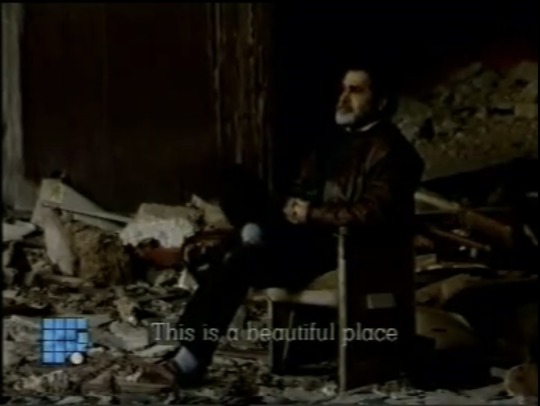
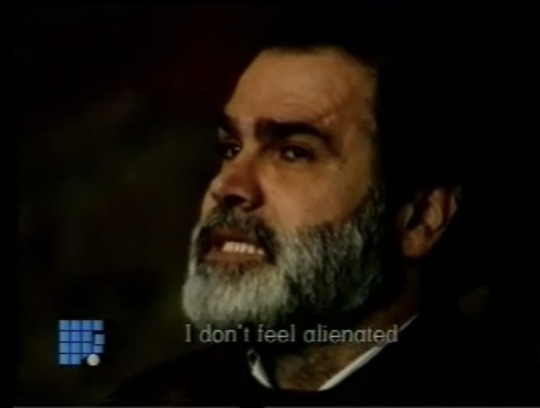
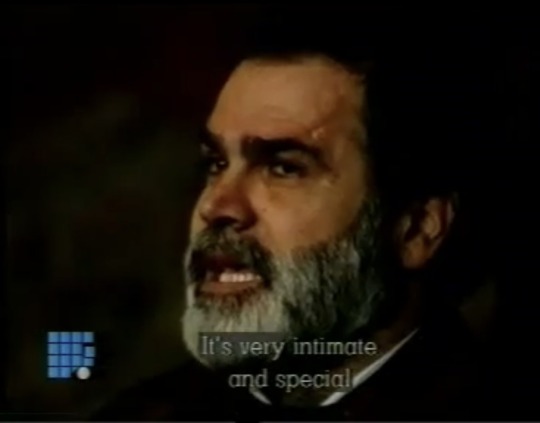
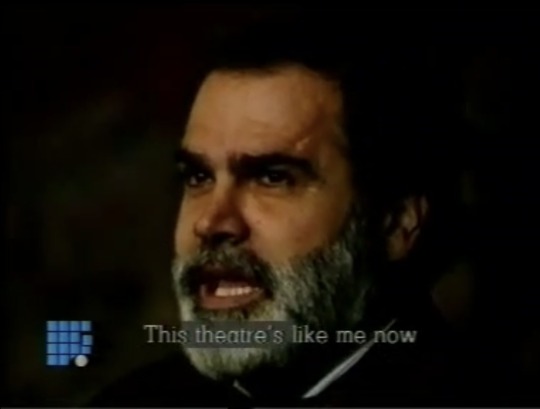


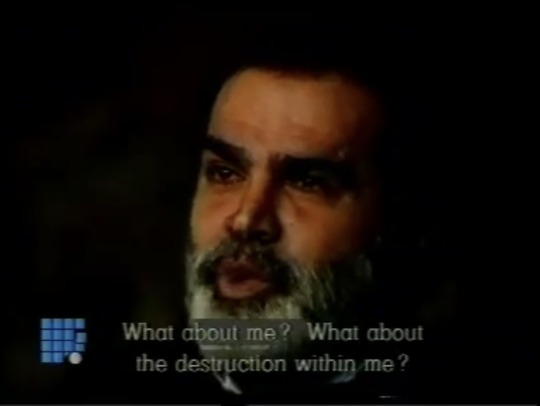

Suspended Dreams (1992 / Jean Khalil Chamoun, Mai Masri)
3 notes
·
View notes


